Given that awareness of the global epidemic of diabetes mellitus is lagging behind the astounding rise in prevalence of this condition globally, part of the impact of the Global Diabetes Institute has been raising up new leaders in the field. Over the past 25 years, Dr. Hawkins has mentored more than 100 M.D. students, residents, fellows and junior faculty members at Einstein as well as overseas, many of whom have become involved with Global Diabetes Institute projects. A significant number of these individuals are themselves having a substantial impact on national or global diabetes research, education and/or advocacy, with the following being some noteworthy examples.
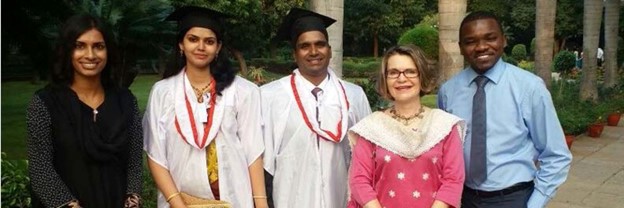
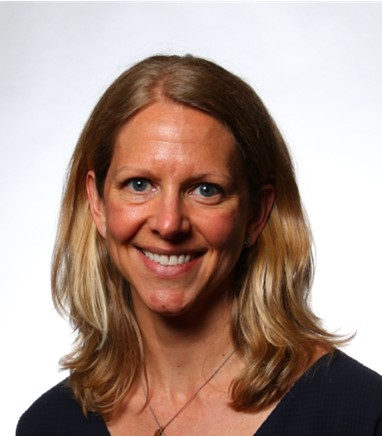
Dr. Sylvia Kehlenbrink, MD
Dr. Sylvia Kehlenbrink is an Endocrinologist and Director of Global Endocrinology at Brigham and Women's Hospital, Part-time Instructor at Harvard Medical School, and Founder and Director of the Diabetes in Humanitarian Crises Program at the Harvard Humanitarian Initiative.
Her research focuses on diabetes care in humanitarian settings and improving insulin access in low and middle-income settings. She has helped convene the UNITED research consortium, which consists of seven leading international humanitarian organizations and aims to improve diabetes care in humanitarian contexts through collaborative, practice-based research. Together they completed the first collaborative inter-agency study evaluating diabetes care data, organizational practices, and challenges facing practitioners in the delivery of diabetes care in a diversity of crisis contexts. Dr. Kehlenbrink organized the inaugural Symposium on Diabetes in Humanitarian Crises at Harvard University in April 2019 which convened over 100 leaders in global health to discuss the immediate needs and barriers to tackling diabetes in humanitarian crises and adopt a unified, action-oriented agenda. The meeting resulted in the Boston Declaration which was published in The Lancet Diabetes & Endocrinology and outlines four key target areas that the 64 signatories are seeking to address over the next three years. She is now leading the newly formed International Alliance for Diabetes Action (IADA) which aims to address the targets in the Boston Declaration. Between 1999 and 2012 (as a student and a research fellow), Dr. Kehlenbrink spent significant periods of time working with Dr. Hawkins on what would become the Global Diabetes Institute. She was instrumental in developing our global research program in India as well as in writing manuscripts and helping to initiate our work in Uganda.
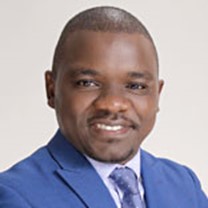
Dr Eric Lontchi Yimagou, PhD, MPH
Dr. Eric Lontchi Yimagou served as a postdoctoral research fellow and then a faculty member at the Global Diabetes Institute from 2016 to 2021, supported by the American Diabetes Association, and enrolled in Einstein's Clinical Research Training Program. During that time he traveled to Christian Medical College, Vellore, India several times to oversee an ongoing research project which included highly sophisticated metabolic 'clamp' studies, for which he has a remarkable level of expertise. For over 10 years Eric has been actively involved in projects related to the epidemiology and pathophysiology of diabetes, both at national and international levels. Eric received his MSc degree in Nutritional Biochemistry from the University of Yaoundé I (Cameroon) in 2010 and his Ph.D. in Physiology and Pathophysiology from the University of Pierre and Marie Curie (Paris, France) in 2015 under the mentorship of Professors Jean Claude Mbanya, Eugene Sobngwi, and Jean Francois Gautier. During his Ph.D., Eric investigated ketosis-prone diabetes (KPD), a unique phenotype of diabetes most frequently seen in people originating from Africa. This involved the conduct of highly sophisticated clamp studies. He also holds a Master's in Public Health and Nutrition from the University of Paris 13.
Eric has been invited to present his research findings at several national and international conferences, including Scientific Sessions of the American Diabetes Association, the European Association of the Study of Diabetes, the American Federation of Medical Research (AFMR), and the African Diabetes Congress. He is the recipient of numerous honors and awards, including the Einstein/Montefiore Young Investigators Awards (USA, 2019), the American Diabetes Association postdoctoral fellowship (USA, 2018), the Henry Christian and the Eastern Regional Scholar Awards from the American Federation for Medical Research (USA, 2017), a fellowship grant from L'Institut Servier (Paris, 2015), a fellowship grant from the French Government (Paris, 2014), and the Jean Claude Mbanya Fellowship Award from the African Diabetes Congress (Cameroon, 2014). Recently, Dr. Lontchi Yimagou was appointed as a Clinical Scientist at Sanofi where he supports the clinical strategy of novel therapeutics and the medical supervision of large multinational clinical studies in complex disease areas, and is gaining valuable experience in managing clinical studies. His ultimate desire is to remain actively involved in global health research and advocacy. Most notably, Eric was selected as a Next Einstein Forum (NEF) Fellow, a program that identifies Africa's most promising young scientists (https://nef.org/fellow/dr-eric-lontchi-yimagou-phd-mph/).
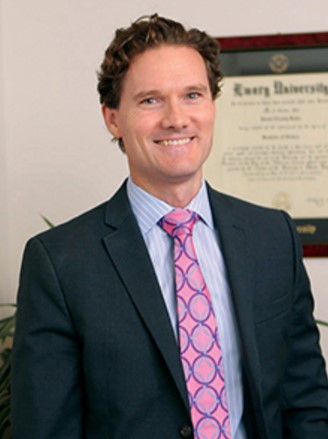
Dr. Jason C. Baker, MD
Dr. Jason Baker is currently an Assistant Professor of Clinical Medicine and an Attending Endocrinologist at New York-Presbyterian/Weill Cornell Medicine in New York. He earned his medical degree at Emory University in Atlanta, Georgia, and completed an Internal Medicine residency at New York University and a fellowship in Diabetes, Endocrinology and Metabolism at Albert Einstein College of Medicine/Montefiore Medical Center. Dr. Baker's interests include disease management through education and lifestyle interventions, prevention of type 1 diabetes, and the impact of diabetes on international health. From 2006 to 2010, Dr. Baker was significantly involved in developing our Global Diabetes Institute's partnerships in India and Uganda, which included several trips to both countries and a highly dedicated effort to medical education, including helping to run several large diabetes education conferences. Inspired by a courageous young woman with type 1 diabetes who he met in Uganda, Dr. Baker subsequently founded the non-profit organization "Marjorie's Fund", which after 10 successful years of growth has become Diabetes Empowerment International (diabetesempowermentinternational.org). Diabetes Empowerment International is a type 1 diabetes global initiative dedicated to education, care, and research of type 1 diabetes in the developing world.
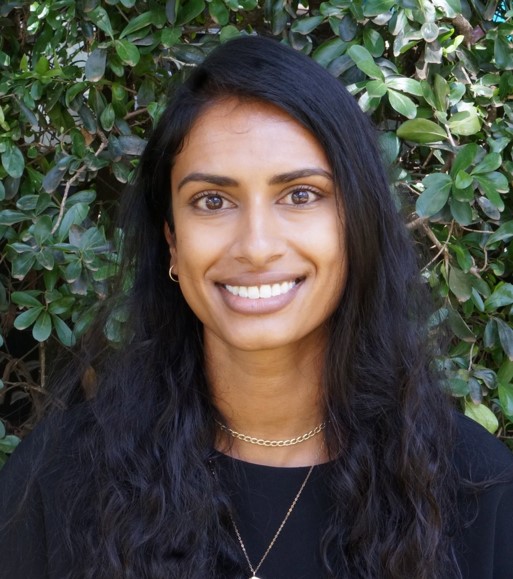
Anneka Wickramanayake, MPH
Anneka Wickramanayake is currently the Director of Research, Evaluation, and Design at Jacaranda Health in Kenya, overseeing research projects, data and analytics, and product management. Prior to joining Jacaranda Health, she held the position of Research Director for Laterite in Ethiopia, and as a Monitoring and Evaluation Specialist for the American Refugee Committee in Rwanda. She has also worked in rural hospitals in Tanzania and Uganda, to foster excellence in patient care. She specializes in research and evaluation methods. After graduating with a Master of Public Health degree in Epidemiology and Biostatistics with a specialty in Global Health from the University of California, Berkeley, Anneka moved to New York in 2014 for her first job, which was as the Program Manager for the Global Diabetes Institute. From 2014 to 2018, Anneka was instrumental in developing both our complex research program in India as well as a highly successful program mentoring and supervising Einstein medical students in improving diabetes care in two settings in Uganda.
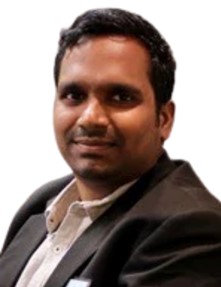
Dr. Aaron Chapla, MSc Medical Biochemistry, PhD Biochemistry
Currently, Dr. Aaron Chapla is a basic science faculty member in the Department of Endocrinology, Christian Medical College, Vellore, and leads the Molecular Endocrinology Laboratory (MEL). Dr. Chapla worked closely with the Global Diabetes Institute in helping to define low BMI diabetes as distinct from monogenic forms of diabetes (An Atypical Form of Diabetes Among Individuals with Low BMI). He joined CMC in 2003 as a student in MSc Medical Biochemistry and has worked as a tutor in Biochemistry & in-charge Clinical Biochemistry laboratory (CMC Ditchpally, A.P) and as an Associate Research Officer (ARO) in the Department of Haematology (CMC, Vellore). With this experience, he joined Endocrinology in 2011 to set up a molecular laboratory from its foundational aspects and to pursue a Ph.D. His research interests include Maturity Onset Diabetes of the Young (MODY), Neonatal diabetes and his focus is towards establishing induced pluripotent stem cells (iPSCs) based investigations to uncover the molecular mechanisms underlying various forms of monogenic diabetes. As a lead scientist in MEL, he is responsible for all the monogenic diabetes genetic testing and receives samples from across India and from neighboring countries for both its research into monogenic diabetes and the translation of its research findings into diagnostic service.
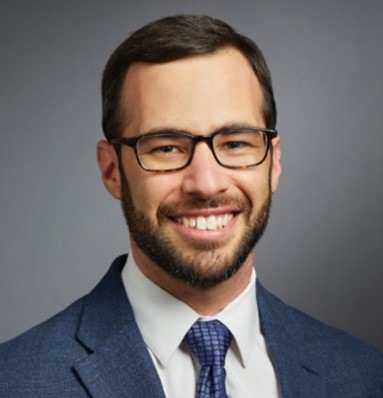
Ross Kristal, MD
Dr. Ross Kristal, MD is currently the Senior Director in the Office of Ambulatory Care and Population Health, the Medical Director of the Contact Center, and an Attending Physician at NYC Health + Hospitals. Dr. Kristal received his M.D. degree from the Albert Einstein College of Medicine. He was first connected to Dr. Hawkins' research team as a premedical student, and then was mentored by Dr. Hawkins throughout medical school. His involvement with the Global Diabetes Institute included a highly productive summer spent at Christian Medical School in Vellore, India during which time he initiated a highly sustainable model of type 1 diabetes peer support groups, which have continued for many years afterwards, and were shown to significantly improve glycemic control (Peer Support Group Model Improves Glycemic Control and Social well being in Type 1 Diabetes Mellitus in India). As a medical student, Ross also distinguished himself by founding a very popular student group called “Bronx, Obesity, Diabetes and You” (BODY) which involved students in many creative health projects in the Bronx (https://www.einsteinmed.edu/features/stories/632/ross-kristal-establishing-a-body-of-work-to-combat-obesity-diabetes/). Ross then proceeded to complete his residency in Internal Medicine-Primary Care at Yale. In 2018, he was one of ten individuals selected for the Doctor's for America Copello Fellowship where he advocated for policy changes to improve the wellbeing of patients and communities. In his current position he is able to significantly impact the health of many underserved, minoritized individuals in New York City.
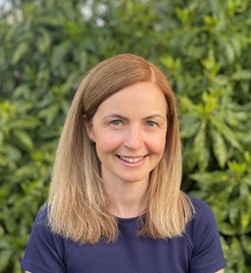
Dr. Michelle Carey, MD
Dr. Michelle Carey worked with the Global Diabetes Institute for three years (2012-2015) and traveled to India twice during that time, where she was instrumental in supervising a sophisticated research protocol and was heavily involved in data analysis and manuscript writing. She was also highly productive in conducting metabolic studies at Einstein; these examined both central regulation of glucose metabolism as well as pathophysiology of hypoglycemia-associated autonomic failure. Her research resulted in several honors and awards, including the Henry Christian Award and the Junior Physician Scientist Award from the American Federation of Medical Research. When family reasons motivated a move to Washington D.C. in 2015, Dr. Carey joined the U.S. Food and Drug Administration as a Clinical Reviewer in the Division of Urology, Obstetrics, and Gynecology, and subsequently joined the Diabetes Team in the Division of Diabetes, Lipid Disorders, and Obesity (DDLO). In 2021 she became Acting and then Permanent Clinical Team Leader on the Diabetes team, and in October 2022 she was promoted to Associate Director for Therapeutic Review in DDLO. Dr. Carey works on review and regulation of drugs intended to treat type 1 diabetes mellitus, type 2 diabetes mellitus, and hyper-insulinemic hypoglycemic disorders.
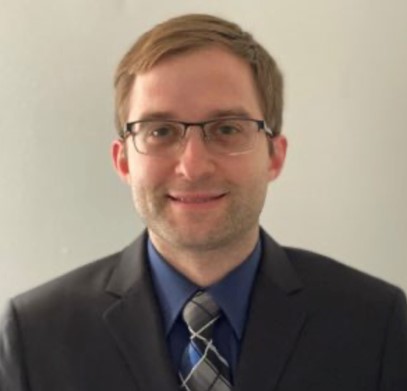
Dr. Dariusz A. Hareza, MD
Dr. Hareza considers that his involvement with the Global Diabetes Institute had a significant impact on his career. In the summer of 2015, Darek and team of fellow medical students from Einstein contributed significantly to the improvement of patient care at the diabetes clinic at the Soroti Regional Referral Hospital in Uganda. After this experience, Dr. Hareza returned to the United States with a newfound passion for epidemiology. He realized that the epidemiologic skills he had learned in the diabetes clinic overseas were applicable to other fields of medicine. Two years later he again returned to Uganda as a part of an Einstein-led program in southwestern Uganda. Dr. Hareza subsequently participated in a fellowship at the Centers for Disease Control and Prevention, and pursued his internal medicine residency at the University of Chicago where he worked alongside the Chicago Department of Public Health in response to the Covid-19 pandemic. He is currently in his second year as a infectious disease fellow at John Hopkins Medicine where he is conducting clinical research on gram-negative bacterial resistance. Dr. Hareza hopes to continue nourishing his passion that he developed as a part of the Global Diabetes Institute and continue his international work studying the epidemiology of bacterial resistance (very pertinent to diabetes) in countries most affected by it.